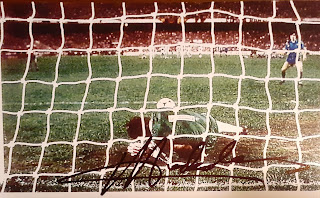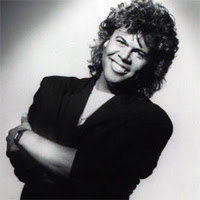 Raymond Daniel Manzarek Jr. (né Manczarek; February 12, 1939 – May 20, 2013) was an American musician, singer, producer, film director, and author, best known as a member of The Doors from 1965 to 1973, which he co-founded with singer and lyricist Jim Morrison. Manzarek was notable for performing on a keyboard bass during many live shows and some recordings, taking on a role usually filled by a bass guitar player.
Raymond Daniel Manzarek Jr. (né Manczarek; February 12, 1939 – May 20, 2013) was an American musician, singer, producer, film director, and author, best known as a member of The Doors from 1965 to 1973, which he co-founded with singer and lyricist Jim Morrison. Manzarek was notable for performing on a keyboard bass during many live shows and some recordings, taking on a role usually filled by a bass guitar player.
Manzarek recorded on every track of all eight Doors studio albums, and was inducted into the Rock and Roll Hall of Fame in 1993. He was a co-founding member of Nite City from 1977 to 1978, and of Manzarek–Krieger from 2001 until his death in 2013. USA Today defined him as "one of the best keyboardists ever."
 Following his return to the United States, he re-enrolled in UCLA's graduate film program in 1962, where he received a M.F.A. in cinematography in 1965.[7][8] During this period, he met future wife Dorothy Fujikawa and undergraduate film student Jim Morrison. At the time, Manzarek was in a band called Rick & the Ravens with his brothers Rick and Jim.[9] Forty days after finishing film school, thinking they had gone their separate ways, Manzarek and Morrison met by chance on Venice Beach in California.
Morrison said he had written some songs, and Manzarek expressed an
interest in hearing them, whereupon Morrison sang rough versions of "Moonlight Drive", "My Eyes Have Seen You" and "Summer's Almost Gone". Manzarek liked the songs and co-founded The Doors with Morrison at that moment.
Following his return to the United States, he re-enrolled in UCLA's graduate film program in 1962, where he received a M.F.A. in cinematography in 1965.[7][8] During this period, he met future wife Dorothy Fujikawa and undergraduate film student Jim Morrison. At the time, Manzarek was in a band called Rick & the Ravens with his brothers Rick and Jim.[9] Forty days after finishing film school, thinking they had gone their separate ways, Manzarek and Morrison met by chance on Venice Beach in California.
Morrison said he had written some songs, and Manzarek expressed an
interest in hearing them, whereupon Morrison sang rough versions of "Moonlight Drive", "My Eyes Have Seen You" and "Summer's Almost Gone". Manzarek liked the songs and co-founded The Doors with Morrison at that moment.
During this period, Manzarek met guitarist Robby Krieger and drummer John Densmore at a Transcendental Meditation lecture and recruited them for the incipient band. Densmore said, "There wouldn't be any Doors without Maharishi."[10]
 The Doors' first recording contract was with Columbia Records.
After a few months of inactivity, they learned they were on Columbia's
drop list. At that point, they asked to be released from their contract.
Following a few months of live gigs, Jac Holzman "rediscovered" The Doors and signed them to Elektra Records.
The Doors' first recording contract was with Columbia Records.
After a few months of inactivity, they learned they were on Columbia's
drop list. At that point, they asked to be released from their contract.
Following a few months of live gigs, Jac Holzman "rediscovered" The Doors and signed them to Elektra Records.
The Doors lacked a bass guitarist (except during recording sessions), so at live performances Manzarek played the bass parts on a Fender Rhodes Piano Bass. His signature sound was that of the Vox Continental combo organ, an instrument used by many other psychedelic rock bands of the era. He later used a Gibson G-101 Kalamazoo combo organ (which looks like a Farfisa) because the Continental's plastic keys frequently broke.
During the Morrison era, Manzarek was the group's regular backing vocalist. He occasionally sang lead, as exemplified by covers of Muddy Waters's "Close To You" (released on 1970s Absolutely Live) and "You Need Meat (Don't Go No Further)" (recorded during the L.A. Woman sessions and initially released as the B-side of "Love Her Madly"). He went on to share lead vocals with Krieger on the albums (Other Voices and Full Circle) released after Morrison's death.


















